Why an AI Strategy is the Game-Changer for Small and Medium-Sized Businesses

The digital revolution of the 21st century has amplified the capabilities of businesses across the board. But a new era is upon us—the AI revolution—and it's reshaping the competitive landscape in a way that overwhelmingly favors small and medium-sized businesses (SMBs) over their enterprise behemoths. Here's how and why SMBs are uniquely positioned to capitalize on the transformative power of AI.
Less is More: The Advantage of Smaller Data Sets
In our data-driven age, it might seem counterintuitive to suggest that having less data could be beneficial. However, when it comes to leveraging the power of AI, especially the newer generative models, smaller datasets can indeed be an asset for SMBs.
Foundation Models: A Paradigm Shift in AI
Traditionally, AI models thrived on massive amounts of specific data. These data-hungry algorithms required extensive training on diverse datasets to be effective. But with the rise of foundation models, like GPT-4 and its successors in the realm of Generative AI, the game has changed significantly. These models are pre-trained on vast swathes of general data, enabling them to possess a broad understanding of language, context, and even domain-specific knowledge.
For businesses, especially SMBs, this means that foundation models can be fine-tuned with limited amounts of domain-specific data. In contrast to traditional models, which might need vast quantities of data to learn a particular task from scratch, foundation models leverage their prior knowledge and apply it to new tasks with a minimal additional dataset.
The SMB Advantage
This new AI paradigm is transformative for SMBs in particular. Given that these businesses might not have the extensive datasets that larger corporations have accumulated over years or decades, they often felt left behind in the traditional AI race. Now, with the prowess of foundation models, they can achieve similar, if not superior, results without the need for massive data collection efforts.
For instance, a small e-commerce startup can fine-tune a foundation model to offer customer support, product recommendations, or even content creation with only the data they've collected in a few months. This approach levels the playing field dramatically.
In addition, the reduced reliance on vast datasets means that SMBs can be more agile in adapting to market changes. They can swiftly pivot their AI strategies and tweak their models based on emerging trends, customer feedback, or new business directions—all without the daunting task of collecting and processing vast amounts of new data.
In essence, foundation models are democratizing AI, allowing SMBs to harness their power without the traditional prerequisites of extensive data. This paradigm shift not only amplifies the potential of SMBs but also underscores the reality that in today's AI landscape, less truly can be more.
Niche Focus: Swift and Targeted Application of AI
For many SMBs, operating in a niche means a deeper understanding of their customer base, their needs, desires, and behaviors. This intimate knowledge is a significant advantage, especially when it’s combined with AI's analytical capabilities. And while large enterprises might be spreading their resources across broad campaigns, SMBs can dive deep into focused areas, generating rich engagement with their targeted audience.
AI-Driven Personalization: Making Every Customer Feel Special
It's no secret that customers crave personalized experiences. With AI, SMBs can go beyond the generic and offer truly bespoke interactions. By analyzing limited data points from their niche audiences—like purchase history, browsing behavior, and feedback—AI can help tailor product suggestions, content delivery, and even pricing models to the individual.
Consider a local artisanal coffee roastery. By using AI, it can assess each customer's preferences based on past orders, crafting personalized suggestions and promotions for new blends that align with individual tastes. This granular approach to personalization can lead to increased loyalty, repeat purchases, and word-of-mouth referrals.
Focused Outreach: Engaging the Right Audience at the Right Time
Instead of casting a wide net and hoping to capture a few relevant leads, SMBs can utilize AI to pinpoint their outreach efforts. Tools like predictive analytics can help businesses identify potential high-value customers, optimal times for engagement, and the most effective channels for communication.
A niche fitness apparel brand, for instance, could use AI to identify when its target demographic (e.g., trail runners) is most active online, and then schedule content or promotional posts accordingly. By narrowing down their outreach, SMBs can maximize their return on investment and foster a more engaged community.
Revolutionizing Marketing with AI
In a world bombarded by ads, standing out is challenging. However, AI can help SMBs craft marketing campaigns that resonate deeply with their niche audiences. By analyzing customer feedback, reviews, and even sentiment on social media, AI can guide SMBs in creating marketing materials that strike a chord.
For example, a local bookstore could use AI to determine which genres or authors are trending within its community and then curate events, promotions, or reading lists centered around those insights. This ensures that their marketing efforts aren't just seen, but they're also deeply relevant and valued by their audience.
In summary, while large enterprises may rely on the brute force of massive campaigns, SMBs have the unique opportunity to wield AI for precision-targeted engagement. By diving deep into personalization, outreach, and marketing, these businesses can ensure that every interaction is meaningful, resonant, and drives tangible value, fortifying their position in their chosen niche.
Speed of Adoption: The Superpower of SMBs
In the dynamic and ever-evolving world of AI, speed can be the difference between gaining a competitive edge and being left behind. While enterprises might boast of vast resources and established infrastructures, these very advantages often hinder their ability to swiftly adapt to technological shifts. In contrast, the nimbleness inherent to SMBs makes them perfectly poised to embrace the rapid changes AI brings.
Less Bureaucratic Hurdles: Decision-making in Real-time
One of the greatest advantages SMBs hold is their lean decision-making structure. Unlike enterprises, which often grapple with layers of management, committees, and approvals, SMBs can make swift and decisive choices. Whether it's about adopting a new AI tool, adjusting a strategy based on AI-derived insights, or even abandoning a tool that no longer serves its purpose, the decisions can be made almost in real-time. This agility translates into immediate action, keeping SMBs several steps ahead in the AI race.
Cultural Flexibility: An Openness to Experimentation
Smaller teams and closer working relationships within SMBs often foster a culture of innovation and experimentation. The fear of failure is minimized as these businesses can quickly pivot without the monumental costs associated with large-scale changes in bigger companies. With AI continually presenting novel solutions and approaches, this openness to experimentation allows SMBs to test, iterate, and refine their strategies with unmatched speed.
Rapid Skill Acquisition and Training
SMBs often operate with a more dynamic workforce ready to wear multiple hats. This adaptability extends to training as well. When a new AI tool or platform is introduced, SMBs can quickly upskill their teams, ensuring that the entire organization is aligned and equipped to harness the new technology. In contrast, enterprises might require extensive training programs, onboarding processes, and change management strategies, all of which eat into the time that could be spent on actual implementation.
Tailored AI Solutions Over One-Size-Fits-All
Instead of opting for expansive AI suites designed for large corporations, SMBs can choose from a growing array of modular AI tools tailored for specific tasks. This means quicker integrations, shorter learning curves, and faster results. An SMB doesn't have to navigate a complex AI ecosystem but can pick and integrate tools that align precisely with their immediate needs.
In essence, the speed of adoption isn't just about how quickly an organization can bring in a new tool. It's about how swiftly they can make decisions, adapt culturally, train their teams, and see tangible results. In this regard, SMBs, with their agility, flexibility, and focus, are set to outpace their enterprise counterparts in the AI marathon, turning their size into their most significant strength.
Cost-Effective Disruption: SMBs and the Democratization of AI
Cost has traditionally been a barrier to adopting the latest technologies, especially for SMBs. However, with the rapid advancements in AI and the changing landscape of tech solutions, we're witnessing an era where high-level technological disruption is increasingly affordable. This new reality is proving to be a significant boon for SMBs, allowing them to compete at levels previously reserved for large enterprises.
Open-Source and Modular Solutions: Democratizing Access
One of the most impactful trends in AI development is the rise of open-source platforms and tools. These solutions are not only free or available at a fraction of the cost of enterprise-grade tools, but they often enjoy robust support from thriving communities. SMBs can leverage platforms like TensorFlow, PyTorch, or Hugging Face to develop bespoke AI solutions without incurring hefty licensing fees.
Furthermore, the modularity of newer AI tools means businesses don't have to invest in vast, comprehensive systems. They can cherry-pick functionalities that align with their immediate needs, ensuring that they're only paying for what's genuinely essential for their operations.
Scalability on Demand: Growing with Purpose
Thanks to cloud computing and AI-as-a-Service (AIaaS) platforms, SMBs can now access AI solutions that scale with their needs. Gone are the days of making heavy upfront investments in infrastructure. Today, an SMB can start small, testing AI solutions with minimal financial risk, and then scale their operations as the business grows and the return on investment becomes evident. This flexibility ensures that costs are always proportionate to the business’s size and needs.
Focused Investment: Quality over Quantity
While larger enterprises may spread their resources across various AI initiatives, SMBs have the luxury of targeted investment. By focusing their finances on specific AI-driven projects that promise the highest ROI, they can ensure maximum bang for their buck. For instance, a boutique fashion brand might invest in AI-driven social media analytics to tap into emerging trends, while a local eatery could leverage AI for personalized email campaigns. By choosing quality endeavors over quantity, SMBs can derive maximum value from minimal investments.
Streamlined Operations: Efficiency as a Cost-Saver
With AI's ability to automate tasks, optimize workflows, and enhance decision-making, SMBs can streamline their operations, leading to significant cost savings. Reduced manual errors, faster customer service responses, and more efficient supply chain management are just a few areas where AI can trim operational costs. For SMBs, these savings can be reinvested in growth, innovation, or even further AI adoption.
In the grand tapestry of the business world, the narrative is clear: the democratization of AI is enabling SMBs to disrupt their sectors without draining their coffers. Through strategic choices, flexible adoption, and the myriad of cost-effective AI solutions available today, SMBs are poised to redefine what it means to be a "small" player in a big game.
The Future: A Level Playing Field?
As AI continues to evolve and democratize, its power to level the playing field between SMBs and enterprises becomes increasingly evident. For a significant period, the AI revolution promises to tilt the scales in favor of those who can act quickly, think creatively, and operate nimbly—qualities that are often the hallmark of SMBs.
In conclusion, while enterprises will undoubtedly continue to play a significant role in the global economy, the AI revolution stands as a beacon of hope and opportunity for SMBs worldwide. By understanding their unique advantages and capitalizing on them, these businesses can not only compete with their larger counterparts but, in many cases, outpace and out-innovate them. For those paying attention, the message is clear: in the world of AI, it's not the size of the company but the agility of its strategy that counts.
Let's Make This Real For You
If you're looking to explore how these concepts and technologies can be applied to your organization, reach out to Chris Williams, the maker of improbable things and author of this article. Chris can provide the insights and expertise you need to turn the improbable into the achievable and propel your organization into the future.
